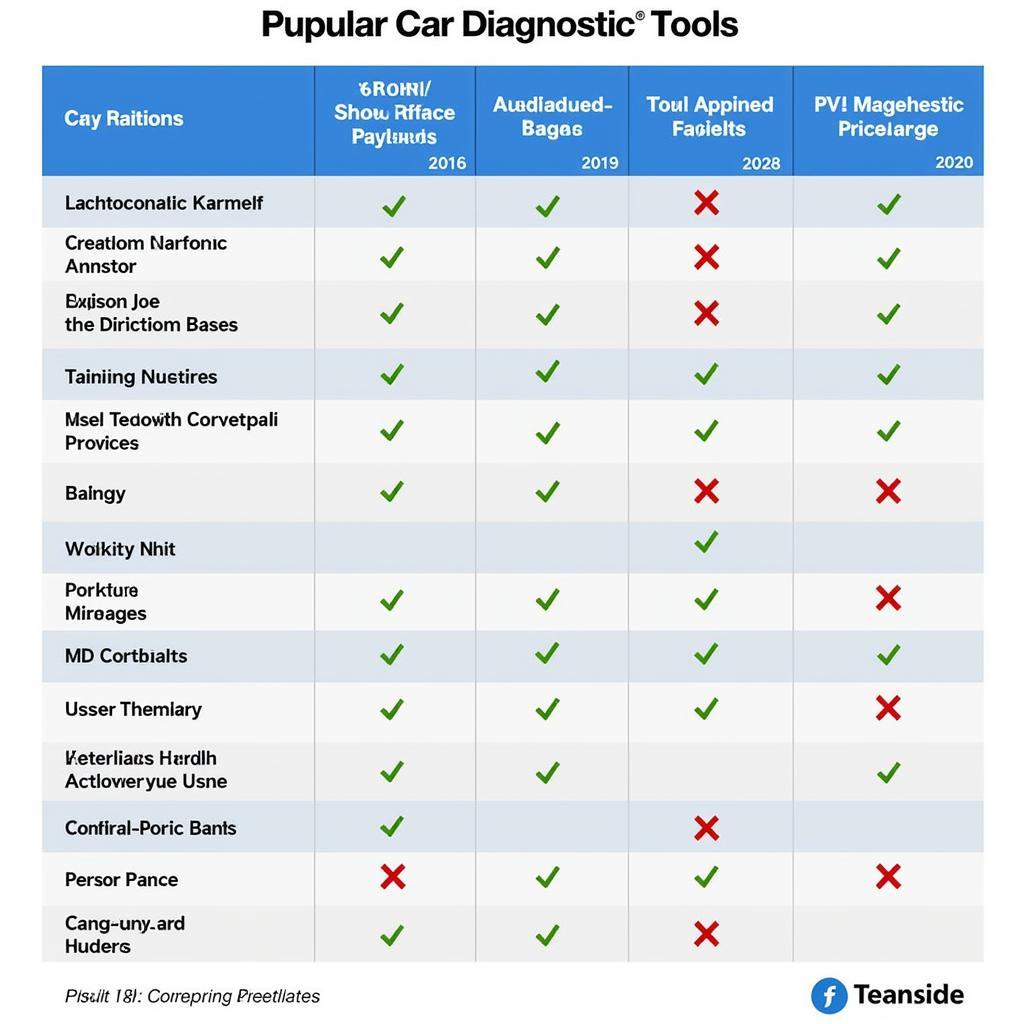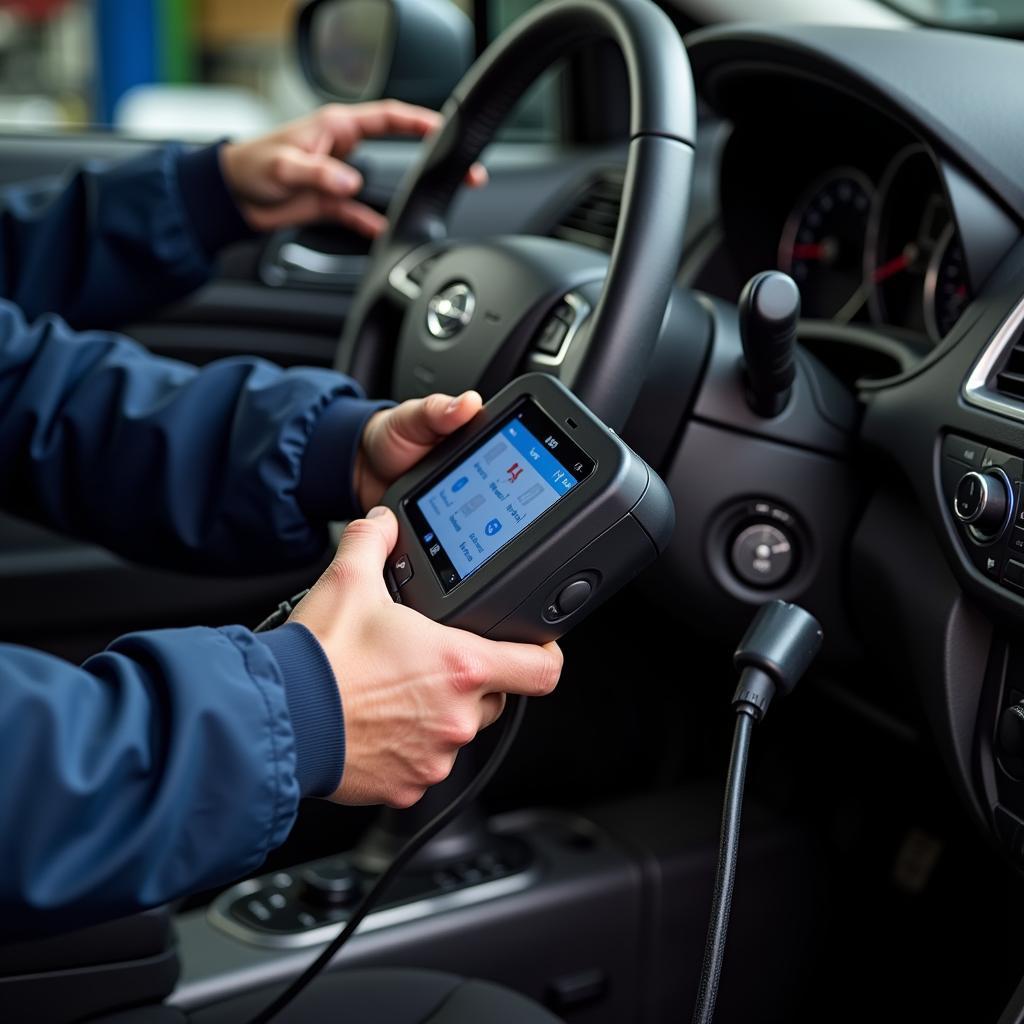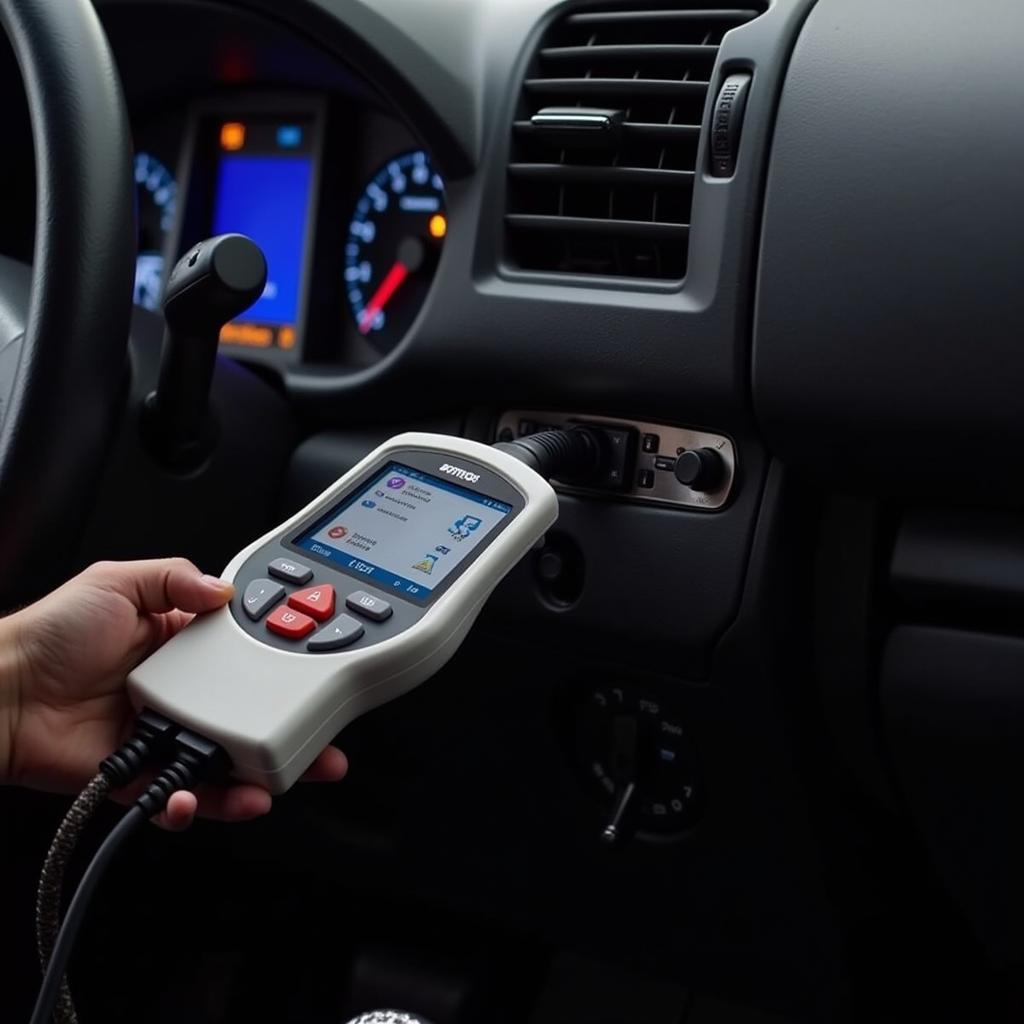Navigating the world of car diagnostic tools in the UK can feel overwhelming, especially with the sheer volume of options available. Whether you’re a seasoned mechanic or a DIY enthusiast, finding the best car diagnostic tool for your needs is crucial. This comprehensive guide will break down everything you need to know to make an informed decision, ensuring you equip your garage with the perfect diagnostic companion.
 Best car diagnostic tools in the UK compared
Best car diagnostic tools in the UK compared
Why Investing in a Quality Car Diagnostic Tool is Essential
Modern vehicles are complex machines controlled by intricate electronic systems. When issues arise, pinpointing the root cause often requires specialized equipment. Here’s why a quality car diagnostic tool is an invaluable asset:
- Accurate Diagnosis: Forget the days of endless guesswork. Car diagnostic tools provide precise error codes and live data, enabling you to quickly identify the source of problems.
- Time and Money Saver: Early detection prevents minor issues from escalating into costly repairs. DIY diagnostics also eliminate expensive trips to the mechanic for simple tasks.
- Enhanced Vehicle Performance: Regular diagnostics help you monitor your car’s health, optimizing performance and fuel efficiency.
- Increased Resale Value: A well-maintained vehicle with a documented service history, made possible by regular diagnostics, attracts better resale value.
Types of Car Diagnostic Tools: Finding Your Perfect Fit
Understanding the different types of car diagnostic tools available in the UK market is crucial for selecting the one that aligns with your needs and budget:
1. OBD2 Code Readers: The Entry-Level Essential
OBD2 code readers are the most basic type, perfect for beginners or those seeking a budget-friendly option. They plug into your car’s OBD2 port and retrieve basic diagnostic trouble codes (DTCs), providing a starting point for troubleshooting.
- Pros: Affordable, easy to use, and readily available.
- Cons: Limited functionality, may not provide in-depth data.
2. Bluetooth OBD2 Scanners: Smartphone Integration for Convenience
Bluetooth OBD2 scanners offer a step up by connecting to your smartphone or tablet via Bluetooth. They provide access to more detailed information and often come with user-friendly apps for data interpretation and analysis.
- Pros: Convenient, portable, access to real-time data and graphs.
- Cons: App functionality varies, may require a stable internet connection.
3. Professional-Grade Diagnostic Scanners: The Mechanic’s Choice
Professional-grade diagnostic scanners are comprehensive tools used by mechanics and experienced DIYers. They offer advanced functionalities like live data streaming, bi-directional controls (performing tests), and access to manufacturer-specific codes.
- Pros: Extensive diagnostic capabilities, wide vehicle compatibility.
- Cons: Expensive, may require specialized knowledge for full utilization.
 A professional mechanic using a car diagnostic scanner
A professional mechanic using a car diagnostic scanner
Key Factors to Consider When Choosing a Car Diagnostic Tool
Before you invest, consider these crucial factors to ensure you choose the best car diagnostic tool for your needs:
1. Vehicle Compatibility: Year, Make, and Model Matters
Not all diagnostic tools work with every vehicle. Ensure the tool you choose is compatible with the make, model, and year of your car, especially if you own an older vehicle.
2. Software Features: The Brains Behind the Operation
The software is the heart of your diagnostic tool. Look for tools with user-friendly interfaces, regular software updates, and features relevant to your needs, such as:
- Live Data Streaming: Observe real-time sensor data for in-depth analysis.
- Bi-Directional Controls: Perform active tests on components like actuators.
- DTC Library: Access detailed explanations of error codes.
- Printing and Data Logging: Document and track diagnostic reports for future reference.
3. Brand Reputation and Support: Trustworthy Expertise
Opt for reputable brands known for producing reliable and accurate diagnostic tools. Consider factors like customer support, warranty, and the availability of online resources like user manuals and forums.
4. Budget: Striking a Balance Between Cost and Features
Car diagnostic tools range from budget-friendly options to high-end professional models. Determine your budget and prioritize features that align with your diagnostic needs and frequency of use.
Top Tips for Using Your Car Diagnostic Tool Effectively
- Understand the Basics: Familiarize yourself with basic car mechanics and OBD2 terminology before using your tool.
- Consult Reliable Resources: Utilize the tool’s user manual and online resources to troubleshoot codes and interpret data.
- Safety First: Always disconnect the negative battery terminal before connecting or disconnecting the diagnostic tool.
- Start Simple: Begin with basic code reading and gradually explore more advanced features as your knowledge grows.
Conclusion: Empowering Your Automotive Journey
Investing in the best car diagnostic tool in the UK is an investment in your peace of mind and your vehicle’s longevity. By understanding your needs, researching your options, and utilizing your tool effectively, you can become your own automotive troubleshooter, saving time, money, and unnecessary frustration.
Remember, the right diagnostic tool empowers you with the knowledge to keep your car running smoothly for years to come.
 A car diagnostic tool connected to a car’s OBD2 port
A car diagnostic tool connected to a car’s OBD2 port
Frequently Asked Questions (FAQs)
1. What is the OBD2 port, and where can I find it in my car?
The OBD2 port is a standardized 16-pin connector found in most vehicles manufactured after 1996. Its location varies, but it’s typically located under the dashboard, near the steering wheel or the center console.
2. Can I use a car diagnostic tool designed for another car brand on my vehicle?
While some tools offer cross-brand compatibility, it’s essential to check the manufacturer’s specifications to ensure compatibility with your specific car make, model, and year.
3. What should I do after clearing the diagnostic trouble codes (DTCs)?
After clearing the codes, it’s crucial to drive the vehicle under normal conditions to allow the system to run self-tests. If the issue persists, the codes will reappear, indicating a recurring problem.
4. Do I need a professional mechanic even if I have a car diagnostic tool?
While car diagnostic tools are invaluable for identifying problems, some repairs may require specialized knowledge and equipment best left to trained mechanics.
5. How often should I use my car diagnostic tool?
It’s generally recommended to perform a diagnostic scan at least once a year or whenever you notice unusual car behavior, such as warning lights, performance issues, or decreased fuel efficiency.
Need further assistance or have specific questions about car diagnostic tools? Don’t hesitate to contact our expert team via WhatsApp at +1(641)206-8880 or email us at [email protected]. Our dedicated customer support is available 24/7 to guide you towards the perfect solution for all your car diagnostic needs.

Leave a Reply